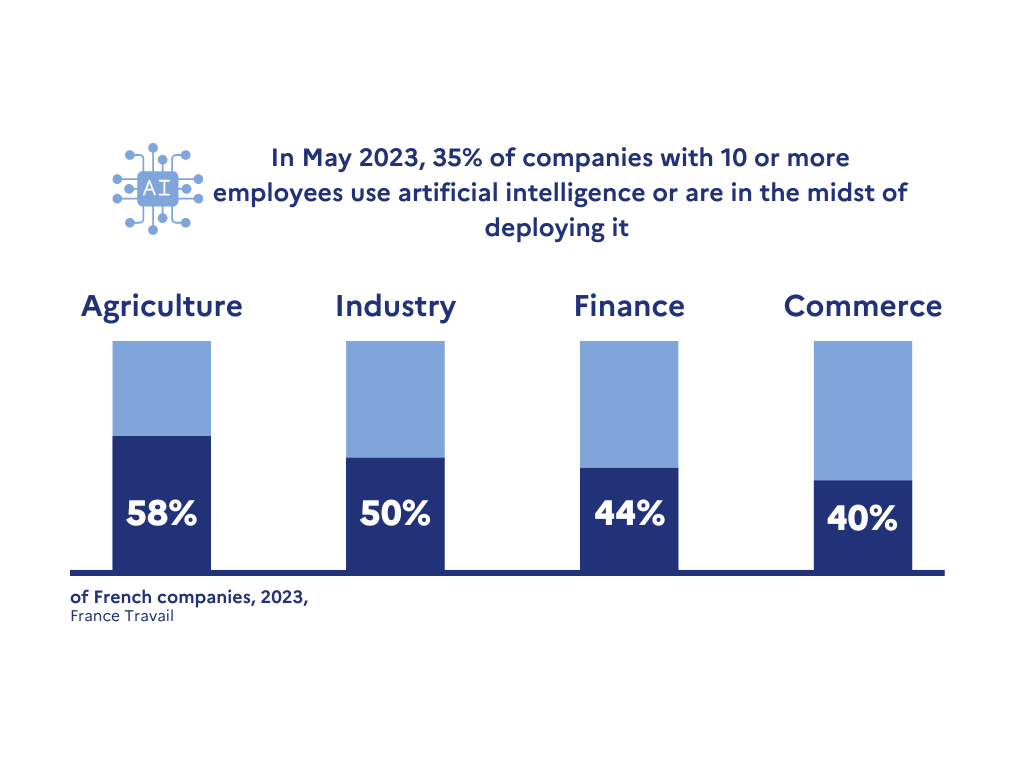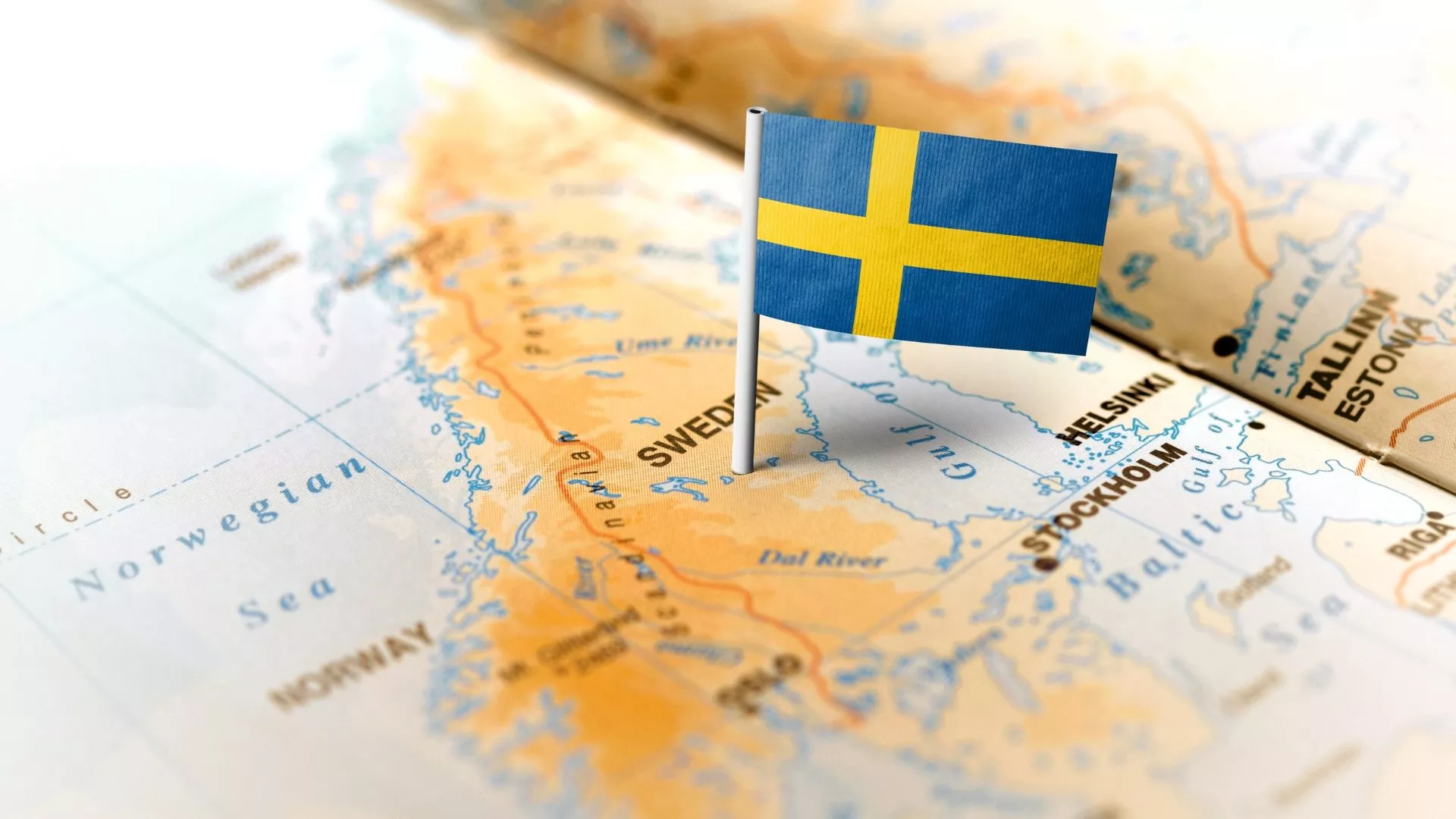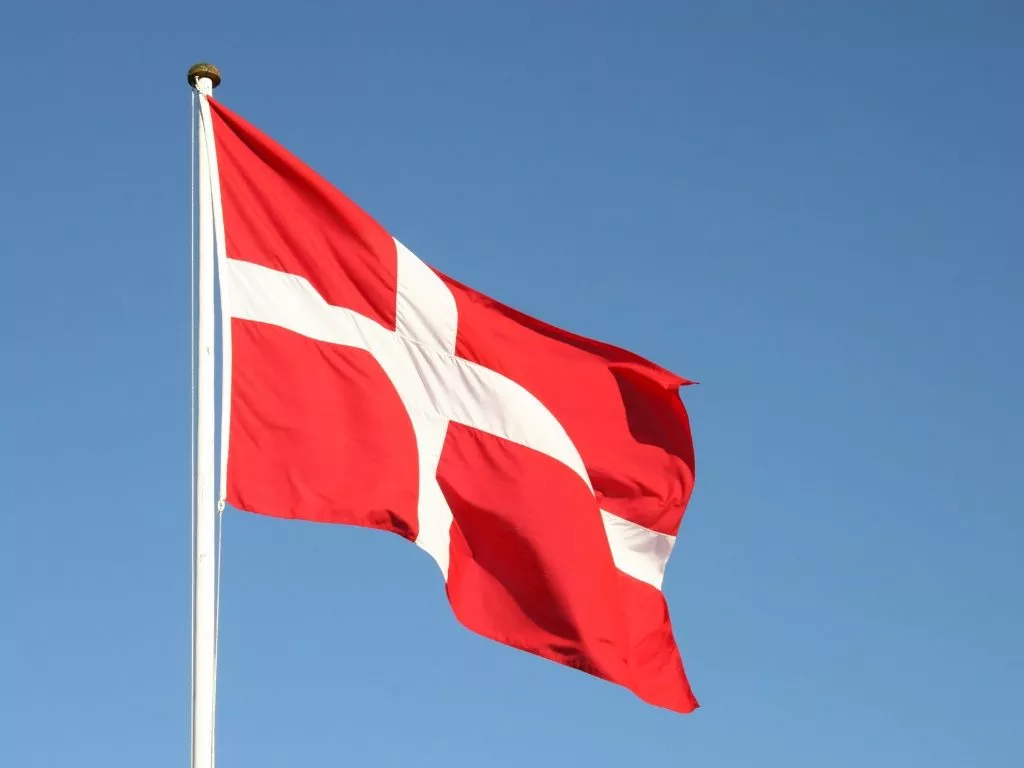- Market Info
AI Race: How France is positioning itself as a leader

The last decade has seen significant advances in artificial intelligence (AI), representing major opportunities. The power of AI is currently underway, and France is positioning itself as a front-runner thanks to a thriving startup ecosystem supported by significant public measures.
France is building a supporting framework for innovation
Far from being a recent invention, artificial intelligence has taken on an extra dimension in recent years as we are experiencing rapid and profound advancements. AI represents a new stage in the history of technology, a revolution that involves us all and represents a central issue for the years to come. The potential of digital technologies could enable a 20% reduction of global CO2 emissions by 2030 participating in the environmental transition, according to a recent study. Indeed, the computing power delivered by AI makes it possible to solve increasingly complex situations, considering many parameters.
Europe, and especially France, initiated several decisions and actions to become a leader in developing and adopting AI technologies on a global scale. Since 2018, France has decided to invest in building the environment needed to develop this cutting-edge technology. The National Strategy for Artificial Intelligence unfolds in 2 phases; the first aimed to strengthen research capacity (from 2018 to 2022) with a budget of €1.5bn. This project enabled France to maintain its position as 7th in the world and 3rd in Europe in terms of publications at scientific conferences on AI from 2017 to 2021, positioning France as a key player in the research community. The second phase (from 2022 to 2025) aims to develop and attract the best AI talent thanks to a €2.2bn investment with €1.5 billion of public funding and 506 million euros of private co-financing.
The first results are already here. AI-powered software is already widespread in France, and companies, regardless of their size or activity, have a role to play in the production or adoption of this technology. According to a recent study by France Travail, 35% of establishments in France use artificial intelligence technologies. Furthermore, this report also highlights a positive effect on productivity: 72% of employers using AI report a positive impact on their employees’ performance, mainly by reducing tedious tasks (63%) or the risk of error (51%). To become a key player in the sector, France should be able to draw on its already well-established French Tech ecosystem driven by a strong culture of innovation.

A competitive and innovative AI ecosystem
According to France Digitale, France is home to 590 AI startups that raised €3.2 billion in 2022. Half of them are profitable or plan to be within three years. 11% of AI startups are self-financing highlighting their overall profitability. Growing and strengthening France’s deeptech ecosystem requires both private and public investment.
As the second phase of the SNIA draws to a close, we can already see the positive effects of these initiatives. The Jean Zay supercomputer has been developed and 81 research centres are dedicated to IA in France, the highest number for a European country. The number of startups in the sector has also increased significantly, with the emergence of successful companies such as ContentSquare, Dataiku, Ivalua, Meero, Mirakl, and Spendesk, strengthening the national deeptech landscape. The recent record-breaking funding operation raised by Mistral AI (€385m) highlighted the performance of French companies. This funding demonstrates the strength of interest in AI in light of the sharp decline in international investment in European countries (-23% in the EU, according to the latest UNCTAD report).
Private players, such as Xavier Niel, the founder of Iliad (Free), are also investing in AI. With a €200 million contribution to acquire a supercomputer, set up a research laboratory in Paris and invest in startups, Xavier Niel supports all stages of product development.
France did not wait for the end of this strategy to initiate new actions in favour of the long-term structuring of the AI ecosystem. As part of France’s 2030 strategy to “Mastering sovereign and secure digital technologies, ” the National Centre for Scientific Research (CNRS), the Alternative Energies and Atomic Energy Commission (CEA), and the National Institute for Research in Digital Science and Technology (Inria), launched the Research Program on Artificial Intelligence (PEPR). At the heart of the scientific challenges of AI, the PEPR aims to respond to the societal challenges of sustainability, ecological transition and technological sovereignty. With a budget of €73 million over six years, it aims to structure research communities to launch stimulating scientific challenges and develop breakthrough technologies that will benefit all French players in the field.
Learn more: France 2030: Building on your side the France of tomorrow
This competitive ecosystem, as well as the scientific and engineering skills of French trainees, are recognised worldwide. It is not a coincidence that major international groups such as Alphabet (Google), Cisco, Fujitsu, IBM, Intel, Meta, Microsoft, Samsung, SAP, and Uber have chosen France to establish their AI facilities.
France, an attractive destination for AI investments
Complete control of the value chain must be considered on a European scale to offer a sovereign alternative to the American and Chinese models. There is talent in every segment of the value chain in Europe. A step has been taken by adopting the AI Act, the first-ever legal framework on AI, which addresses the risks of AI and positions Europe to play a leading role globally.
Synergies between France and the Nordic countries on AI are numerous, as shown by the Swedish company Myrspoven and the French group Schneider Electric. They have decided to team energy and information technology to meet the challenges of climate change. Thanks to various data collected in buildings, AI-powered software can optimise heating and air conditioning systems. Knowing that buildings are responsible for 30% of global CO2 emissions, this technology can help to significantly drive down energy consumption (-25% for electricity), initiating the ecological transition in companies and flats.
There are also opportunities for Nordic companies to invest in France in the field of AI. In a collective effort to structurally redirect savings towards innovation, Bpifrance announced at the beginning of April the opening of the call for projects “Accelerating the use of generative artificial intelligence in the economy”. Effective until the beginning of July, this initiative aims to bring together developers and users of generative AI solutions to develop demonstrators that would eventually be replicable and economically viable.
Learn more: A guide to navigate France’s most significant business-friendly reforms
In the AI race, France stands as an influential player that leverages innovation, resilience, and a thriving startup ecosystem to produce disruptive technologies that shape tomorrow’s digital environment.
Connect with us on LinkedIn to stay updated on French business news!





